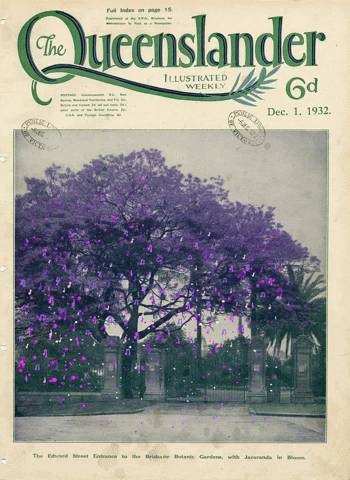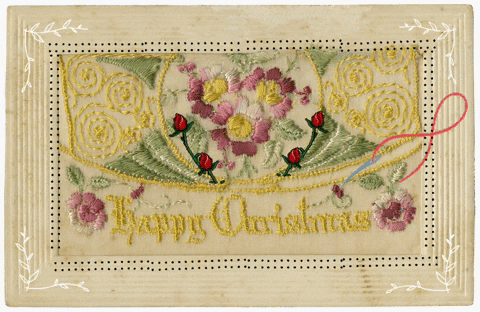
GIFITUP Month
Calling all GIF fanatics, fledgling content creators, and historical photo buffs. We want you to remix and reimagine the State Library of Queensland collection in new and wonderful ways.
This month is GIFITUP month, where libraries, art institutes, and museums around the world encourage GIF-makers and cultural heritage fans to deep dive into open-access digital collections to create new and engaging content AND enter the international contest. The best thing? It's really easy to do, no matter your skill set. Read on, and we'll give you a quick crash course in GIFs, and how to get started using the resources at State Library of Queensland and The Edge Digital Media Lab.
What is a GIF?
A GIF (pronounced 'gif' or 'jif' depending on what side of the debate you choose) was a file type originally designed for graphics back in 1987 by an American computer scientist Steve Wilhite. Fast forward 35 years, and the GIF is the visual language of the internet, shared constantly in place of words to capture emotion, and volley back and forth pop culture references, humour, and commentary.
In its simplest form, a GIF is essentially an animated image or short video grab, without any sound, and often with short text overlayed on top. Some creators use photos, 3D renders and illustrations that are brought to life with moving stickers, or through using an animation program in a collage style aesthetic, like the iconic Monty Python title sequence
Accessing State Library’s image collection
A terrific place to start exploring images to use for GIFs are those images from State Library of Queensland’s collection that are part of The Commons on Flickr and are marked ‘no known copyright restrictions’. This indicates that State Library is not aware of any current copyright restrictions on these works. The term of copyright may have expired, or no evidence may have been found that copyright restrictions apply.
The State Library of Queensland has more than 1.5 million photographs in its collection dating back to the late 1800s. Just over 60,000 are available online for you to use! Explore these images in our Flickr account now!
So how do you get started creating GIFs?
We think GIFITUP month is a great opportunity to dive deep into the State Library of Queensland’s collections and reimagine these rich cultural heritage images. If you are new to making GIFs, there are a variety of different platforms available. GIPHY is a quick and easy way to animate existing content, and there is information on the GIFITUP page to get you started.
IF you are keen to get more advanced in your GIF making, you can take advantage of the State Library subscription to LinkedIn Learning, a treasure trove of amazing resources, such as this one on how to create GIFs in Photoshop.
The Digital Media Lab at the Edge is a perfect place to get GIFing as it provides free access to the Adobe Creative Suite, including Photoshop. All the information on how to access Linkedin Learning is available here.
Have a look at some of the GIFs created by us using State Library’s open-source collection items.
Now, over to you! Explore our collection, make some inspired GIFs, enter the GIFITUP competition and share them with us – we'd love to feature some of your creations in an upcoming blog. Email us on appliedcreativity@slq.qld.gov.au
Keep an eye out for our next post about GIFs – we'll tell you MORE about GIFs and how to power up your GIF making skills
How to enter GIF IT UP
1. Find an inspiring piece of open access cultural heritage from State Library of Queensland. Check out GIF IT UP's Selected Collections page for inspiration.
2. Create an awesome GIF. Don’t know how? They’ve provided lots of resources to get you started.
3. Submit your GIF for a chance to win prizes.
4. Share your GIF on social media using the hashtag #GIFITUP2022
5. Don't forget to share what you've made with us too

Comments
Your email address will not be published.
We welcome relevant, respectful comments.